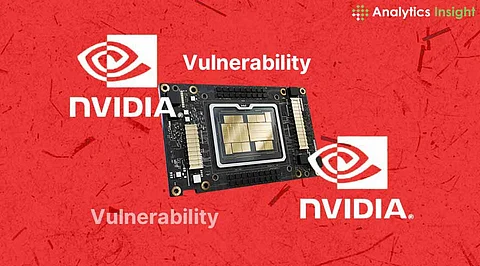

Intel has raised concerns about security vulnerabilities in AMD and Nvidia products in its latest Product Security Report 2024. The report claims that AMD’s hardware has over four times more firmware vulnerabilities in its hardware root-of-trust and nearly twice as many in its confidential computing technologies compared to Intel. Additionally, Intel goes on to say that 78 of AMD's vulnerabilities are not planned to be corrected, thereby exposing users to risk.
Intel's report also points at certain security deficiencies in products made by Nvidia. The report states that 18 high-severity vulnerabilities were found, 13 of them with remote code execution capabilities.
Such flaws allow attackers to gain full control of an affected system remotely. Conversely, Intel disclosed 10 security issues in its GPU, only one of which was considered severe in nature.
Intel stressed its emphasis on proactive security, claiming internally applied procedures that discovered 96% of vulnerabilities affecting its products. It declared that all root-of-trust vulnerabilities about its chips have been remediated or mitigated and credited its security personnel and bug bounty program for the identification and remediation of potential threats before becoming critical.
From the report, AMD discovered only 57% of the platform vulnerabilities raised against its own chips, with the remainder 43% due to external researchers. This raises serious questions regarding AMD's internal security. There are further criticisms of AMD's Secure Processor engine, which finds itself plagued by multiple unresolved vulnerabilities affecting 78 different product models.
Nvidia also came under the scanner for issues that it allegedly had in security. The report states that all 18 of the vulnerabilities identified in it were rated as high-severity, with 13 of them being classified as remote code execution risks.
These security loopholes can allow all sorts of hackers to access affected systems, thus the importance of a security patch.
While Intel's report raises serious concerns about its competitors, some experts in the field suggest that perhaps they should not be read uncritically. Intel, AMD, and Nvidia compete hard against one another in the semiconductor world, each vying for leadership in CPUs and GPUs.
Intel quite firmly holds on to the CPU position, while AMD has slowly been taking a considerable chuck of its market. Nvidia is quite firmly at the helm of GPUs while Intel attempts to make desperate inroads.
AMD, Intel, and Nvidia all announced new security notices for vulnerabilities discovered lately. Intel published 34 new advisories, of which only one is called critical. The criticality has to do with Server Board BMC vulnerabilities, which could lead to privilege escalation and denial of service attacks.
AMD, on the other hand, issued 11 security advisories, some of them addressing high-severity vulnerabilities in its processors and graphics drivers. Nvidia had since released security updates, targeting issues of remote code execution risks.
The report hits significant security concerns in the chips of AMD and Nvidia. Although the charges may carry competitive bias, they draw attention to the fact that security flaws within modern hardware are much to be dealt with.
Such customers need to become acutely aware of security updates and install patches as soon as they are available on the AMD or Nvidia products.
